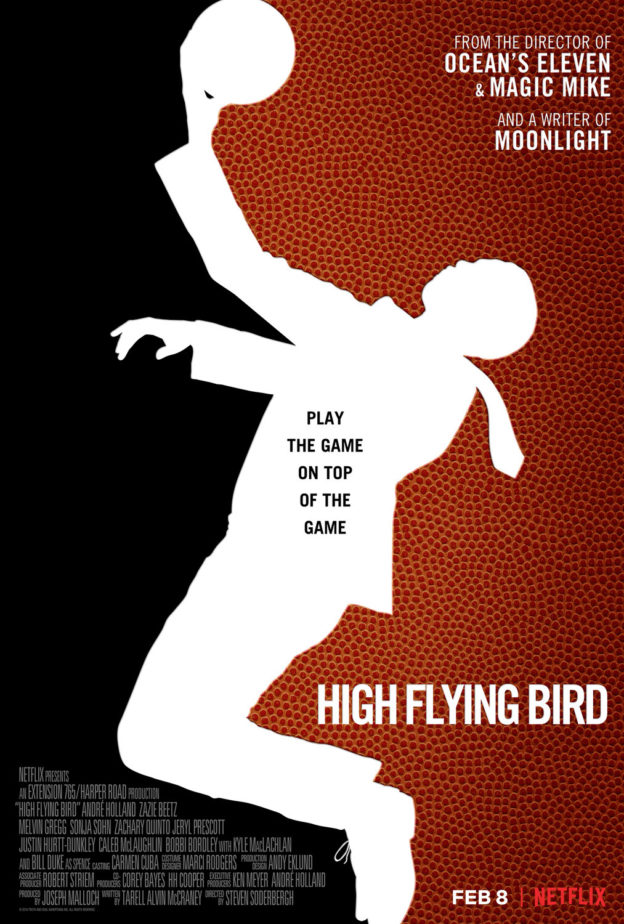High Flying Bird fittingly resembles a no-look pass in basketball: unexpected, deftly maneuvered, and usually resulting in a score. And while Steven Soderbergh’s latest movie accomplishes most of the achievements of the flashy pass — including a score — it isn’t quite a slam dunk.
There’s no denying the basketball drama was unexpected, on a couple levels. First, it proved reports of Soderbergh’s retirement were greatly exaggerated, primarily by Soderbergh. He announced to New York Magazine in 2013 that he was done with film because of Hollywood’s shabby treatment of directors and emphasis on profit.
“Just to be clear, I won’t be directing ‘cinema,’ for lack of a better word,” he told the magazine in January 2013. “But I still plan to direct — theater stuff, and I’d do a TV series if something great were to come along.”
Soderbergh was either bluffing or trying to build buzz for projects, because he’s been anything but idle the last six years. He directed Logan Lucky in 2017, 27 episodes of The Knick and Mosaic for TV, and two movies in the past two years, last year’s Unsane and Friday’s Bird, which premiered on Netflix. But grant him this: He is rebelling somewhat against the film industry. Both Unsane and Bird were shot using iPhones.
And while his filming gadgets of choice feel (and occasionally look) gimmicky, there’s no denying Soderbergh’s mastery of the medium. Topical, tautly-written and showcasing the director’s love of disruption, this story of the economic battle between NBA owners and players marks his best work in years.










